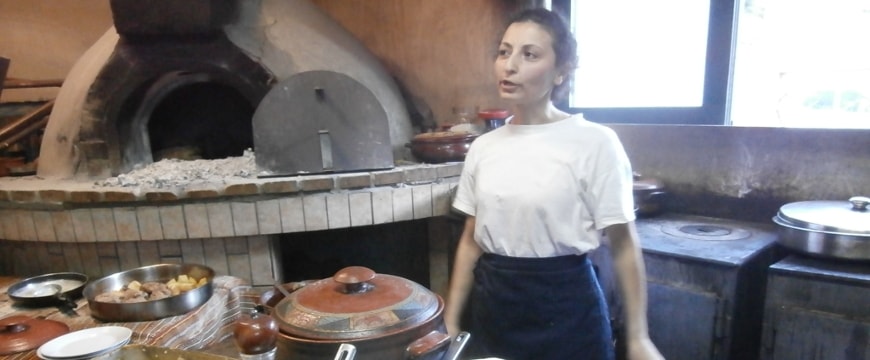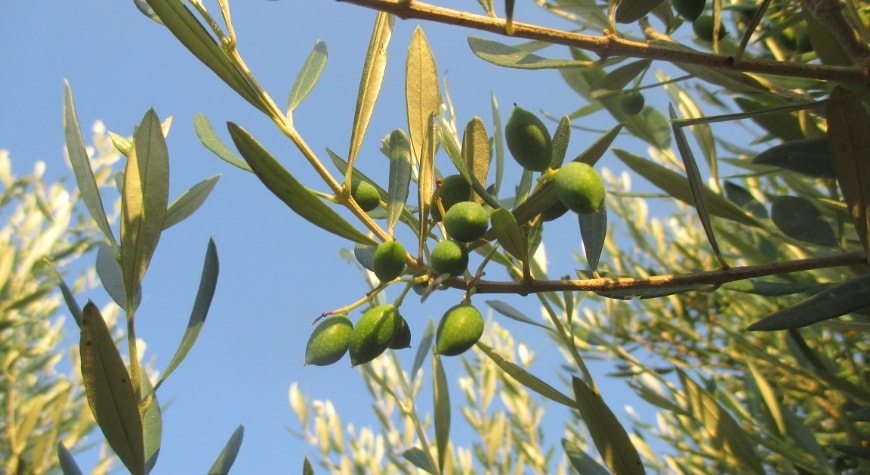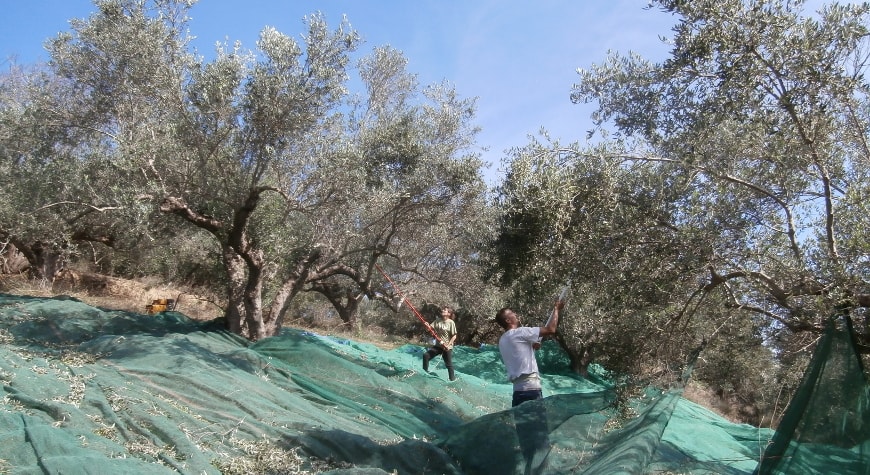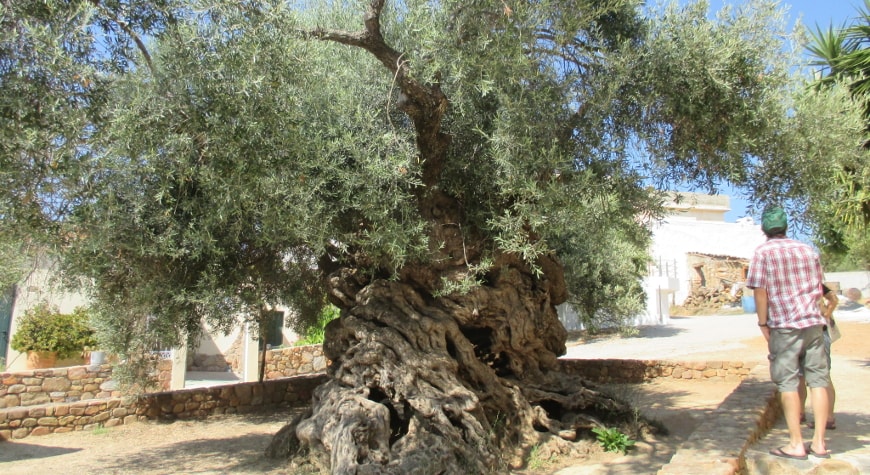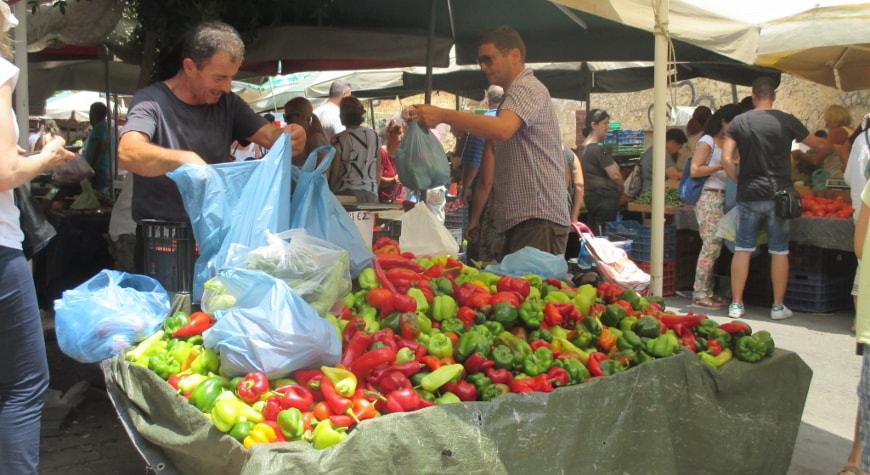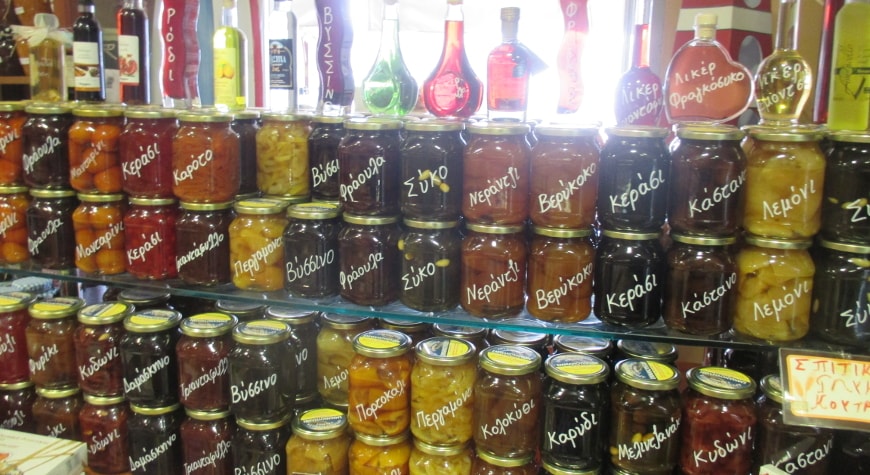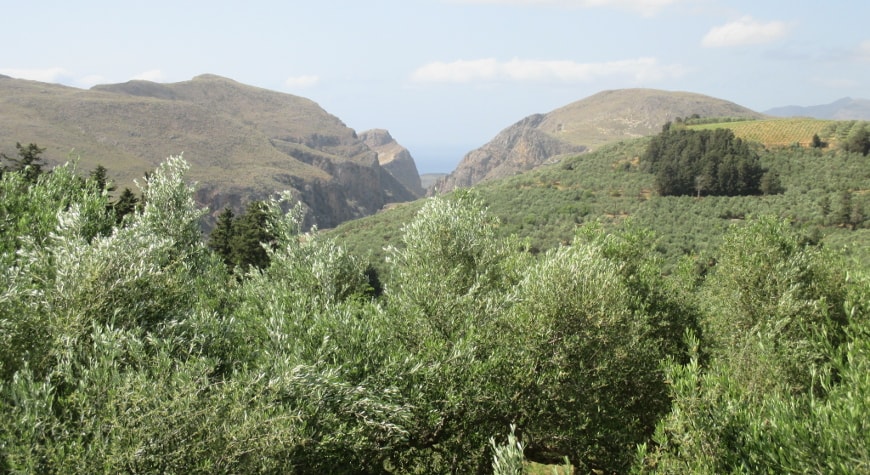What is agrotourism? How does it overlap with food tourism? What good is it? We can explore these questions with examples from Greece, one of the European countries trying to expand tourism beyond the beaches and the summer. With its wealth of olive oil, wine, and fresh produce, the Greek countryside reveals the secrets of traditional healthy Greek cuisine.
Many organizations, families, and individuals offer culinary vacations and tours, cooking holidays and classes, and alternative tourism focused on gastronomy in Greece. Others feature agrotourism and ecotourism vacations on Greek farms and in the fresh air of rural areas.
As its name suggests, agrotourism (or agritourism) is frequently associated with farms where visitors can observe and often help with farming activities. Greeka.com adds that agrotourism can also offer “deep insight in[to] ecology, farming, regional gastronomy, and local customs of the country,” as well as contact with nature and “an authentic village community.”
A downloadable version of the beautifully illustrated Agrotourism Guide for Crete implicitly adopts an expanded definition of agrotourism, introducing visitors to the island’s forests, mountains, caves, waterfalls, wetlands, flora, fauna, canyons, hikes, ecological organizations and museums, monumental trees, and traditional cooking classes, as well as agricultural activities.
Many agrotourists and culinary tourists share an interest in fruit and vegetable harvesting (of olives and grapes, for example), food creation (such as winemaking and olive oil, jam, and cheese production), preparation of traditional regional cuisine (often in rural and village kitchens), and food origins (as in many of the gorgeous landscapes and rustic villages of Greece).
The overlap between agrotourism and culinary tourism was beautifully illustrated in a short BBC video titled “Is culinary tourism the next big thing in Crete?” which initially seemed to be focused on agrotourism (and is no longer available online). It featured the traditional Dounias (or Ntounias) Taverna, which serves traditional Cretan fare made with its own fresh produce in the foothills of the White Mountains, Biolea, which produces organic olive oil at a traditional stone mill in the midst of hills covered with olive groves, and the ancient Vouves olive tree that grows between an olive museum and a café, attracting thousands of visitors each year.
For a broader perspective on Greek “Culinary Travel,” Aglaia Kremezi starts with a brief overview of “the roots of Greek cuisine” in seasonal produce used in home kitchens. Her site also links to the various regions in Greece for more detail about foods and wines traditionally common in each one, the way the area’s history affected its gastronomy, and “culinary highlights” for each area: a few restaurants, shops, bakeries, delis, olive mills, farmers’ markets, or other sites culinary tourists might want to visit.
At a workshop focused on gastronomy, tourism, and branding in Chania, Crete, food editor Harry Tzanis of FnL-guide.com discussed the many elements of gastrotourism (another word for culinary tourism or food tourism) and emphasized the importance of offering tourists excellent bottled and branded extra virgin olive oil in restaurants—which a new Greek law mandates starting in January 2018--along with the traditional cuisine for which Greece is world famous. Forget the stereotypical tourist fare; serve the real food!
As Tzanis and others have pointed out, agrotourism and food tourism could be extremely valuable to Greece if they were pursued more to expand the unnecessarily short tourist season here (mainly June to September), bringing in billions of additional euros each year. Welcoming tourists year round, increasing numbers of small businesses seem to have recognized that the mild Greek climate favors this expansion.
An alternative tourism website focused on Greece provides an overview of the benefits of agrotourism for rural economies and people, for example in helping to preserve traditional customs, products (preserves, jams, herbs, pasta), crafts (embroidery, weaving), and ways of life, while helping to prevent the depopulation of rural areas. Visitors encourage the renovation of traditional buildings and supplement rural families’ income, connecting with Greece’s rural cultural heritage and enjoying peaceful, uncrowded vacations and wonderful food in the scenic countryside at any time of year.
In addition to a growing variety of food tourism and agrotourism ventures throughout Greece, many of the olive mills and bottling plants scattered around the country among its endless olive groves are ready to welcome visitors. They invite everyone from tourists to schoolchildren to tour their facilities and learn about how olive oil is made; some also provide guided olive oil tastings and overviews of olive oil’s history, health benefits, and importance in the culture, history, and economy of Greece. So head inland! Don’t miss the beauty hidden beyond the Greek beaches.
For more about agrotourism and food tourism in Greece, see Greek Liquid Gold’s articles and links.


